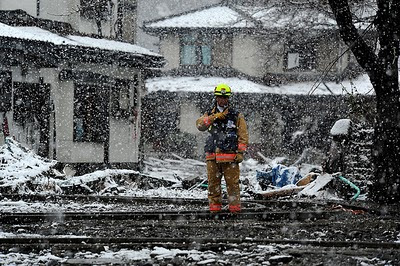 |
| Kamaishi Search and Rescue By DVIDSHUB |
He reminds us of the Japanese saying 一隅を照らす Ichigu wo terasu, which means to light up a corner. Hatsumi Sensei says,
"to be a light that brightens the surroundings."This phrase was brought to Japan from China by Saicho:
From Wikipedia:
Saichō (最澄, September 15, 767 – June 26, 822) was a Japanese Buddhist monk credited with founding the Tendai school in Japan, based around the Chinese Tiantai tradition he was exposed to during his trip to China beginning in 804. He founded the temple and headquarters of Tendai at Enryaku-ji on Mt. Hiei near Kyoto. He is also said to have been the first to bring tea to Japan. After his death, he was awarded the posthumous title of Dengyō Daishi (伝教大師).
 |
| Operation Tomodachi By DVIDSHUB |
In the Lotus Sutra, Buddha said to light up one-just one corner. One corner, not the whole world. Just to light up to make it clear just where you are. Ichigu wo terasu. Ichigu is "one corner." Terasu is "to light up" or "to shine" one corner.
Hatsumi Soke says,
"We should always immerse ourselves in sunlight, and in Budo training, never forget to smile, and never be surprised regardless of what happens."So go light up your corner of the world.
Comments
Post a Comment